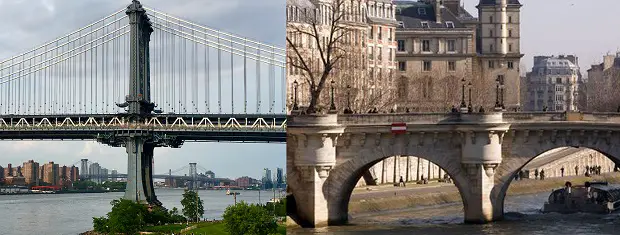Worried about visiting Paris if you don’t speak French? Don’t worry! Here are some tips to help you enjoy your trip even if you only speak English.
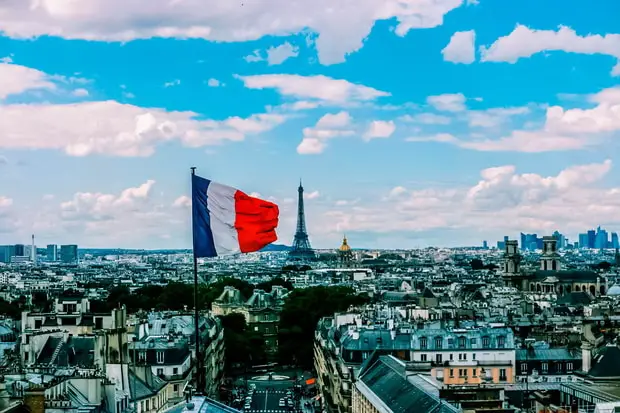
Do French People Speak English?
Not all French people speak English, but many can understand simple things. Studies say around 30 to 50% of people in France can have a basic conversation in English. Fewer speak it fluently.
But it’s not just France—many people in English-speaking countries don’t speak a second language well either.
The good news? Younger French adults are more likely to speak English because they learn it at school and university.
Is It Rude to Speak English in Paris?
Speaking English in Paris is not rude. But expecting everyone to speak English can seem impolite.
A simple way to be polite is to start with a French sentence like: “Bonjour, parlez-vous anglais?” (Hello, do you speak English?). People in Paris will appreciate the effort!
Visiting Paris Without Speaking French
Seeing the Big Sights

Visiting the famous landmarks in Paris is actually pretty easy.
Most places offer tours in English or have pamphlets to help you understand what you’re looking at.
- At the Louvre, you can take guided tours in English.
- The Centre Pompidou offers 90-minute guided tours of the museum and its exhibits.
- Sacré-Cœur gives you free audio guides to download or pamphlets you can use during your visit.
Getting Around the City

Paris is a big city, so getting around can be tricky at first. It’s one of the biggest cities in Europe by metro area.
Apps like Google Maps can help, but you might still get lost in all the small streets (“rues”) and big avenues.
If you want to ask someone for directions, try talking to young adults—they’re more likely to speak English. Start by saying: “Bonjour, parlez-vous anglais?”
Still need help? Ask at hotel or museum front desks. Staff there usually speak English and know the area well.
If that doesn’t work, look around for paper maps. Paris has maps at metro station entrances and in big stores or tourist offices. You can also buy one at a newsstand.
Helpful French phrases:
- “Pourriez-vous me dire comment aller à…?” (Could you tell me how to go to…?)
- “Je cherche…” (I’m looking for…)
- “Y a-t-il une station de métro/de bus pas loin ?” (Is there a metro/bus station nearby?)
Using Public Transport
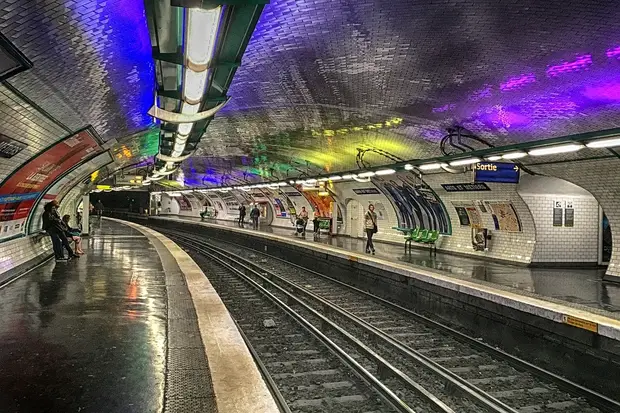
Paris has metros, buses, and RER trains. The metro is easy to spot, and each line has a different color.
Some signs are in both French and English, especially in busy stations. But don’t expect every sign or screen to be in English.
There’s staff during the day at the metro entrances who can help.
Keep in mind: Paris’ metro is old. Most stations still don’t have elevators, which can be hard for people with limited mobility. Line 14 is the only one fully step-free, but some stations on lines 1, 2, 4, and 13 now have elevators.
Some trains also help people with disabilities:
- Lines 1, 4, and 14 have audio announcements.
- Other lines like 2, 3, 5, 9, and 13 often have both sounds and lights to show the next stop.
For help in English, try the app Next Stop Paris – RATP. It’s made for tourists and has all the metro, bus, and train maps in English.
Helpful French phrases:
- “Je voudrais me rendre à…” (I’d like to get to…)
- “Je voudrais un ticket” (I’d like to buy a ticket)
- “Savez-vous où est la ligne…?” (Do you know where line… is?)
Staying in a Hotel
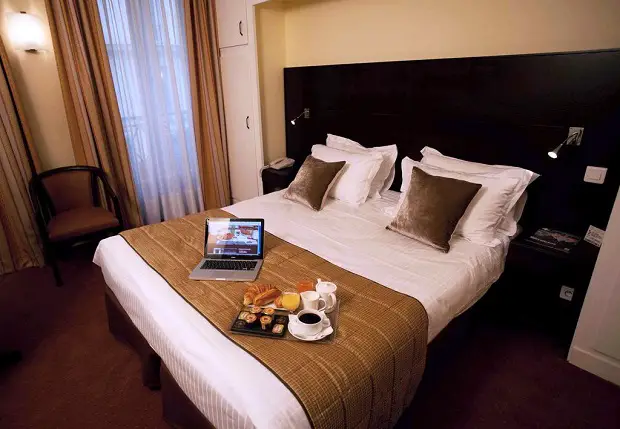
At big hotels, staff often speak English. But in smaller places, that may not happen.
If you booked your room online, print out the confirmation to help the hotel staff understand.
If you haven’t booked yet, here are some helpful phrases:
- “J’ai réservé une chambre” (I have booked a room)
- “Quelle est le prix de la nuit ?” (How much is it for a night?)
- “Je voudrais une chambre” (I’d like a room)
- “Le petit-déjeuner est-il inclus ?” (Is breakfast included?)
- “Est-ce que je peux payer par carte ?” (Can I pay by card?)
- “À quelle heure est le petit déjeuner ?” (What time is breakfast?)
Eating Out
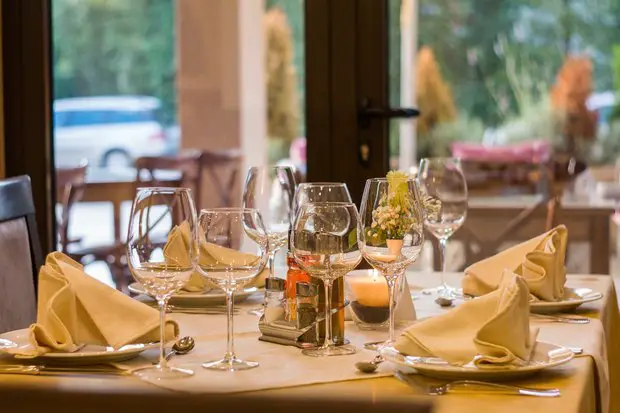
Most restaurants in Paris have menus in English—or even in Spanish, Italian, or German. Just ask when you enter.
Small restaurants might not have translated menus, but many use pictures to help you decide what to eat.
You can also use the Google Translate app. Open your camera, point it at the menu, and it will show the words in your language. It’s not perfect, but it works well enough.
Helpful French phrases:
- “Avez-vous un menu en anglais ?” (Do you have a menu in English?)
- “Combien cela coûte ?” (How much does it cost?)
- “Je voudrais une table” (I’d like to eat)
- “Avez-vous un menu végétarien/végan ?” (Do you have a vegetarian/vegan menu?)
In Short
Even if you don’t speak French, visiting Paris is totally doable.
More people speak English now, and tools like apps, guides, and simple French phrases will help you enjoy the city.
Just be polite, try a little French, and enjoy your trip!
I aim to share my tips and recommendations for the beautiful country of France. My goal is to help you plan your next adventure, whether it’s a weekend getaway or a once-in-a-lifetime trip. From finding the best hotels and restaurants, to discovering unique activities and sights, I’ve got you covered!


